Ginga Eiyuu Densetsu: Die Neue These – Kaikou – 02
There sometimes exists a gap between how good a show is and how much I can really write about it, and so it is with this second episode of Ginga Eiyuu Densetsu. I mean, it was about as rock solid as it gets, a classic battlefield saga of two overbright tacticians going head to head. But if you saw it you saw it – I don’t think there’s a whole lot left up to interpretation.
As Yang-san said, this is indeed a scenario that’s been playing out on battlefields – and in stories about them – since time immemorial, but it’s more than just the final tactical standoff. Arrogant commanders ignore the advice of wiser (often younger) heads, larger armies (or navies) almost being routed by smaller ones better-led, a junior commander stepping in to avert a rout. It’s obvious that Reinhard has to have a foil of roughly equal ability or this is a pretty boring story, and Tanaka-sensei is anything but a fool.
I suppose it’s a natural inclination with this type of scenario to want to choose a side (I’m Team Yang), and I’m sure most readers and viewers have with this franchise since the beginning. I don’t necessarily think Tanaka intends it that way, though – it’s more of a psychological study than a judgment on his part, I’ve always thought. Not that there aren’t differences between these two men and their causes that crystallize as the series progresses, but Tanaka has always been about both sides of the coin and so it is here, I think.
Gurazeni – 02
I really like Gurazeni, but boy, is it geeky. I mean, this is seriously inside baseball stuff. Baseball is a numbers-driven game to a large extent – that’s why it’s proved more fertile ground for statistical analysis than just about any other major sport. Men like Bill James and Nate Silver have made their reputations out of breaking baseball down by the numbers, trying to reduce this idiosyncratic and illogical game to something predictable and even controllable. But I’ve sure never seen an anime embrace that to this extent.
I’m fascinated by the idea that Bonda’s reliability is dependent on the level of respect that he has for the opponent – and that level is totally contingent on salary. And so is the bullpen coach, Nakota-san (and also annoyed by it). What this suggests to me is that Bonda is engaged in a self-defeating cycle, limiting his own success not because of ability, but attitude. Guys who think too much often struggle at the top level of sports (with some exceptions, like Greg Maddux and Larry Bird). How good could Bonda-san be, I wonder, if he simply imagined every hitter he faced was making ¥10,000,000 a year?
It’s not only salary that consumes Bonda, though – he’s also sneaking peeks at the scoreboard to see what his opponent is hitting. Batting average is the most overrated offensive stat in baseball, though (more on overrated stats in a minute). Oddly enough, Bonda manages to be best friends with fellow pitcher Sibuya-san, despite the fact that he makes twice as much (he’s a starter). That whole classmate thing is a big deal in Japan, even at work. Sibuya is victim to another massively overrated stat – wins. Wins are – as we see here – largely a matter of luck. But they do affect reputation in the end, unfortunately.
I’ve definitely seen pitchers go through spells where they get no run support for seemingly impossible stretches of time – and I could see that being an even bigger issue in Japan, where starters basically pitch once a week, thus meaning aces often oppose each other. I felt for Sibuya when he was robbed of his W, but I’m glad it (barely) wasn’t Bonda who caused it. As for closers, well – saves are the only more useless pitching stat than wins, and if you needed any convincing as to why wins are flawed as a measure, the closer who gave up a 4-spot in the ninth got the win because his offense bailed him out. That, as they say, is baseball…


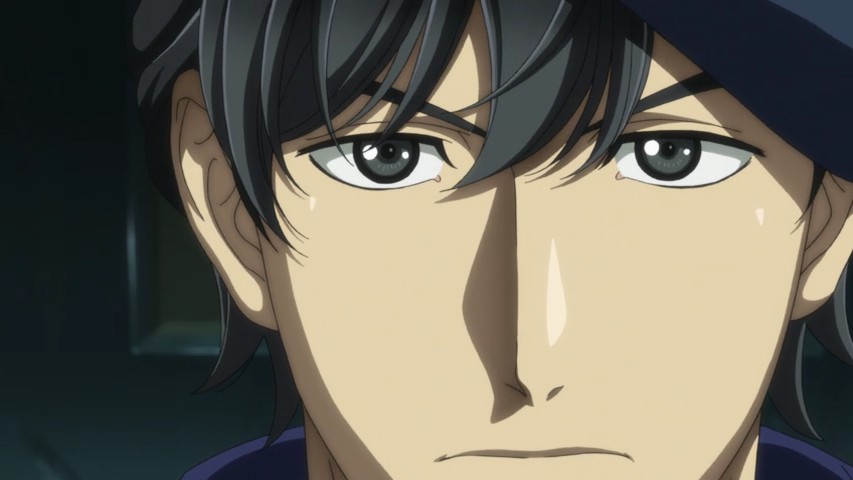


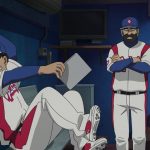

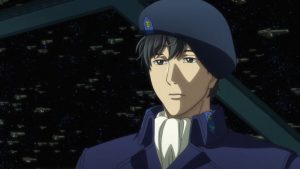
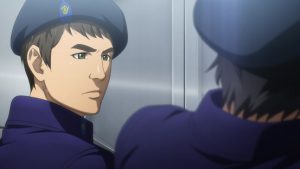

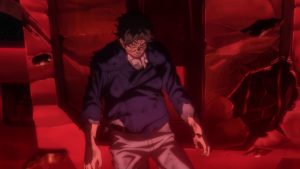

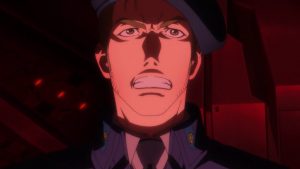
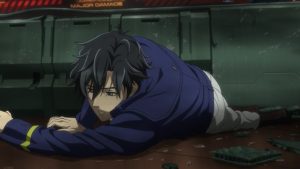
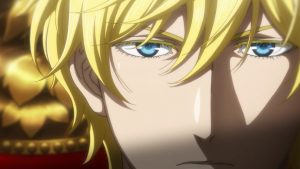

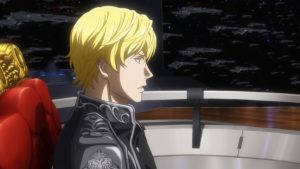
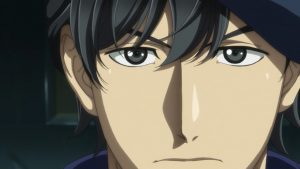


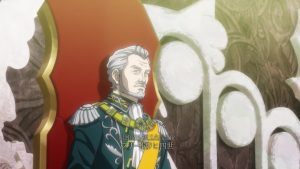
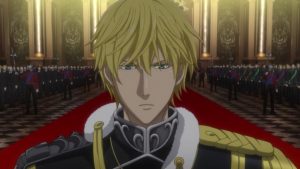
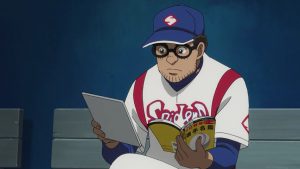
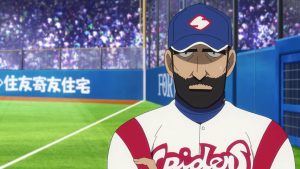
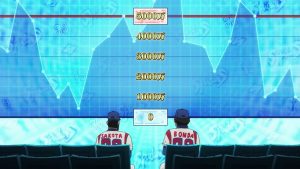
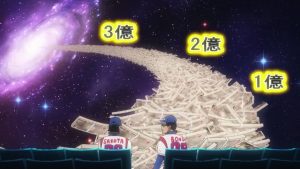
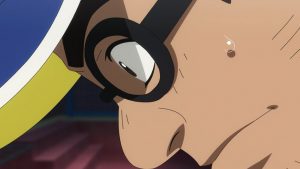
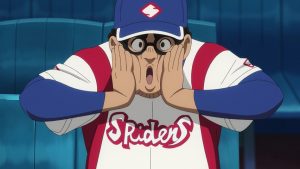
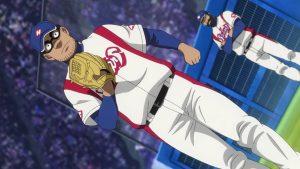
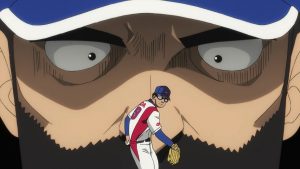
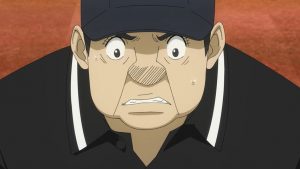
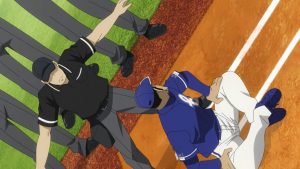
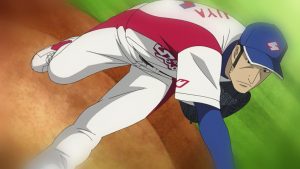
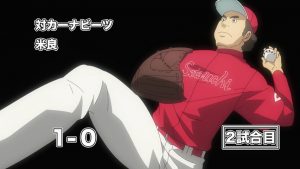
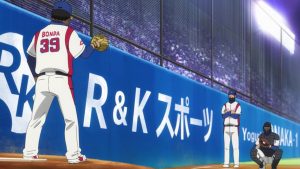
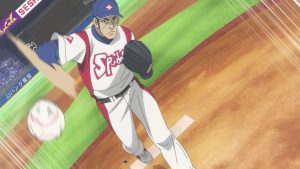
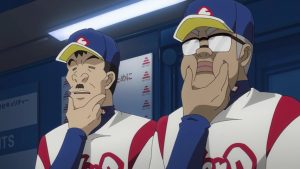
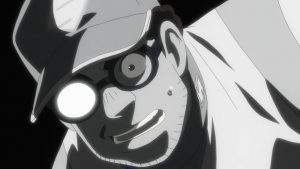
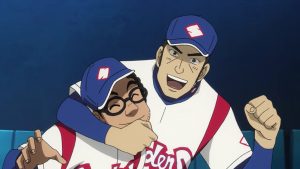
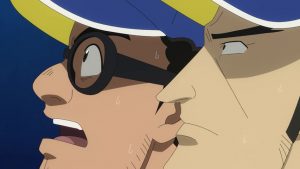
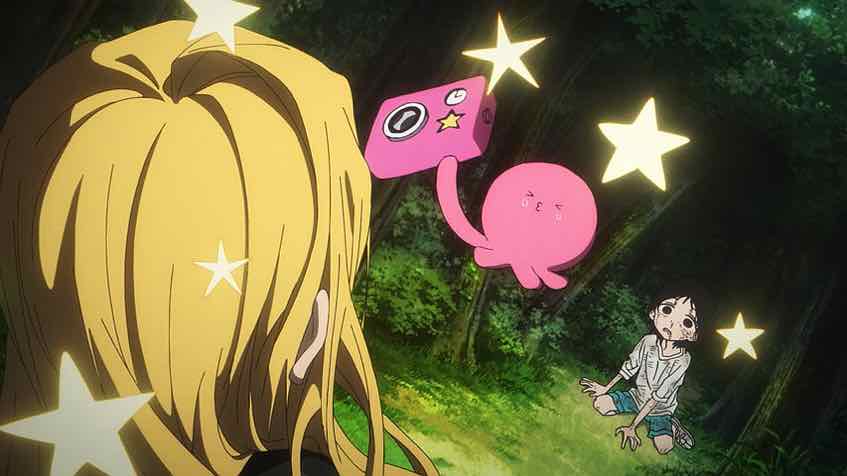

hgfdsahjkl
April 15, 2018 at 1:45 am((There sometimes exists a gap between how good a show is and how much I can really write about it))
I think that applies to the latest HxH chapters
leongsh
April 15, 2018 at 4:05 pmThe first 2 episodes of LoGH reboot is just like the old. Maim character establishing episodes. Episode 1 showed Reinhard, and now Episode 2 showcased Yang. Compared to the OVA, they went with a tighter and leaner approach, trimming away a good amount of narration that introduces the other elements that come into play later. Personally, I think this 2018 version is doing a good job in storytelling by not having too much info dump that the OVA’s narration was guilty of.
I was a bit fearful of what this new adaptation would do but it has been a good surprise. I am liking it a lot.
Gurazeni is playing out exactly like how I thought it would. It’s a good watch for someone who wants to get a backstage pass to peer behind the curtain to see what goes on. This was already earmarked by me earlier to follow and for me, it was not the wrong decision. It is a show that’s narrowly focused for the seinen section who want something more that the same ol’, same ol’.